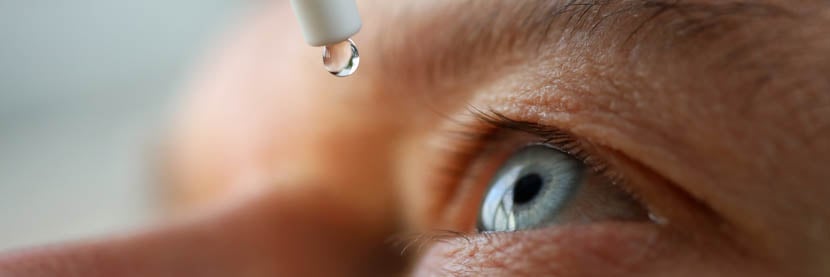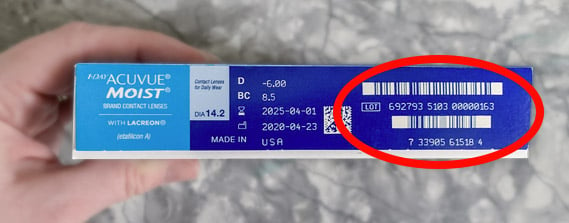All About Contact Lens-Induced Dry Eye (CLIDE)

What is CLIDE?
It is common for contact lens wearers to experience dry eyes referred to as “contact lens induced dry eye” (CLIDE). Other common symptoms include stinging, burning, redness, and itchiness.
Treating Symptoms of CLIDE

Lens Features That Affect CLIDE
Thanks to advances in technology, contact lenses have been designed to be as comfortable as possible. When purchasing contacts, there are factors to look for to reduce the risk of dry eyes.
- Lens Material: Soft contacts made out of silicone hydrogel are instantly comfortable and oxygen permeable, making them the best choice for people with dry eyes.
- Oxygen Permeability: To avoid eye infection, corneas need access to oxygen. Contacts that are permeable allow for oxygen to pass through and reach the cornea.
- Water Content: Lenses with a high water content allow them to stay moisturized longer, but they can dry out eyes faster than contacts with a low water content.
- Replacement Schedule: Daily contact lenses may be popular for their convenience, but they can also be more comfortable and less drying than other types of contact lenses.

Best Contacts Lenses for Dry Eyes
- Acuvue Moist 1-Day: Their Lacreon Technology creates a long-lasting cushion of moisture to help keep moisture in and irritation out.
- Acuvue Oasys 1-Day: Featuring their HydraLuxe technology and low water content, these lenses are tear-infused for all-day moisture.
- Bausch + Lomb Ultra: These lenses are designed with MoistureSeal technology to retain moisture and prevent lens dryness for up to 16 hours.
- Dailies Total 1: These silicone hydrogel lenses feature a water gradient design and superior oxygen transmissibility.
- Proclear: These are currently the only contacts lenses approved by the U.S. Food and Drug Association (FDA) to improve dryness. Their unique technology makes them resistant to dehydration and provides all-day comfort.
When to See a Doctor
If your eyes are constantly dry while wearing contacts, talk to your doctor to go over possible solutions. They can suggest a different type of contact lens or lens care product to try. Always consult with your eye care specialist before switching to new products.

